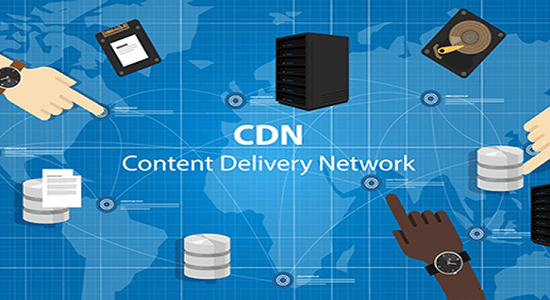The CDN Meaning and other related tech stuff
- September 18, 2019
- by Admin
If you’ve never heard of the IT jargon “CDN” before, consider this your lucky day. Once you find out what the CDN meaning is, it becomes pretty clear what aspect in the tech world, this caters to.
CDN or Content Delivery Network is an interdependent infrastructure of computers online that’s designed to quickly deliver web content to several users by caching or duplicating the content on numerous geographically distributed servers and leading the content to users based on where they are in the world.

CDNs target to deliver content to users with high performance and easy access. More and more business leaders are beginning to see the value of this tech service, in particular, as they service a magnanimous chunk of today’s internet content; these include downloadable objects, web objects, on-demand streaming media, real-time streaming media, e-commerce businesses, anything with scripts and graphics, and also social media.
When a user, on his phone, laptop, or computer, keys in a site or clicks on a show, file, or media—all of which require loading—the server that’s nearest that user then works to transmit the demanded content. As a result, the speed of delivery is increased. Logically, these contents are duplicated on loads and loads of servers during peak usage to present identical content to the users requesting for them. To provide a fuller and clearer picture, think of Facebook, Netflix, or Amazon. A user could be anywhere in the world but watch the same shows and click on the same photos.
Businesses in the entertainment, media, online retail, software, and gaming industries will find CDNs to be a lifesaver because sites under these enterprises naturally have rich digital content; and as such, are determined to deliver only a premium website experience to their users, wherever they may be. Whether people are shopping, streaming a series or movie, or simply playing online games, consumers want nothing less than a desirable, smooth-flowing digital encounter. Therefore, CDNs don’t just provide reach, they also extend convenience. Currently, the global market for CDN services is pegged to be more than 6 billion dollars.
What are the benefits of using a CDN?
Businesses that experience massive online traffic on their sites are very much invited to resort to CDN services. This isn’t just true to sites that provide online shopping, even websites that deliver engaging news articles or the latest updates on pop culture and technology should be CDN-savvy, too.
Improved server load
Well-placed servers are the backbone of company websites in the traffic and digital equation of it all. CDNs enable the increase of accommodation of a website’s concurrent users. Not only does this expand your business’ capacity to cater to even larger audiences, your content also doesn’t suffer because it’s even distributed to several servers.
Content consumption is speedier
Because of enhanced dependability, operators can transmit high-caliber content with big-time and effective services, all while enjoying improved server loads and reduced costs. Furthermore, jQuery is also found everywhere online. It’s likely that a user visiting the same page or site has already accessed that same content through Beluga CDN. What this means is that certain media may have already been cached by the browser so there’s no need to re-download it.
Segregating your market is easier
Different content can be delivered to different users through a CDN. Depending on where a person is and what device they use, CDNs make it easy to segmentize audiences and content format. They can determine what device a person is using and present requested content customized to complement what device the site visitor is using.
Improved network latency
Through a CDN, users encounter enhanced stream caliber and less overall jitter. Tying back to our first point, businesses who resort to a CDN are bound tooter high definition content with improved network loading, low costs, and improved service quality.
Improved usage analytics
CDNs are also designed to apportion, very dynamically, assets to the fallback, edge, and core servers that are strategically apportioned. They offer better control with network load and asset delivery, too. On top of that, they show engaged regions and document specific user viewing details, and also ascertain popular assets.
If you’re looking for CDN services for your company, or if you’re interested in a free trial of a CDN, check out our plans today!
What does CDN contribute to website
Have feedback? Let @belugaCDN know on Twitter



